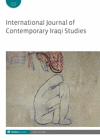-
f The higher education system in Iraq and its future
- Source: International Journal of Contemporary Iraqi Studies, Volume 8, Issue 1, Mar 2014, p. 55 - 72
-
- 01 Mar 2014
Abstract
Despite the fact that higher education in Iraq has suffered from the scourges of many wars (1980–1988, 1991, 2003), international sanctions (1990–2003) and governments’ interference, since 1968, the vast majority of its members struggled to keep the universities and colleges as effective instruments in teaching, researching and providing the society with qualified graduates. But one cannot deny the many obstacles and challenges that faced these institutions. After 2003, neither the occupying forces nor the political parties they imposed on Iraq showed any real interest in developing this sector. One main reason was, perhaps, because the United States feared the educated and skilled Iraqi brains that were the main reasons behind the successes the country had achieved in the past. {(One could cite the words of the former US secretary of state, Madeline Albright, who answered a question about why the sanctions were still imposed on Iraq while admitting that Iraq’s weapons of mass destruction (WMD) were destroyed; she said it was because the brains were still there (Al-Rubaie 2008). Also, the declaration of President Bashar al-Asad who said that following the occupation of Iraq in 2003 he received Colin Powell, then US secretary of state, who warned him against receiving or sheltering Iraqi scientists and academics (al-Mayadeen 2013)}. Also, because of their conservative religious attitudes, the ruling clique after 2003 alienated the technocrats fearing that their role in developing the society and the state could be a real challenge to their own parochial ideologies. The result was an acute deterioration in the field of education in general and higher education in particular.
In general, the higher education system in Iraq was faced with a major challenge, which was represented by the insistence of the different regimes to control the education system. However, the official interference was not always harmful to education in general and higher education in particular. For example, in 1968, the government approved a law requiring the free and compulsory education at all levels, and in 1977, it passed the law for the eradication of illiteracy. UNESCO duly presented Iraq with the prize of the year for eradicating illiteracy in 1982 (Ranjan and Jain 2009). Also, between 1970 and 1980, the regime took a very positive step by sending thousands of students abroad to study for higher degrees. By the end of the decade Iraqi higher education was self-sufficient in all fields of knowledge.
The aim of this essay is to show how the education system has been neglected since 2003 till the present. The article will try to discuss the reality of the higher education system, compare it to the past and look at its future, by examining the main challenges that male and female academics faced during the occupation and the domination of religious-conservative movements in the post-occupation government. The authors’ experience as former members of Baghdad University staff has been the main source for this essay.


